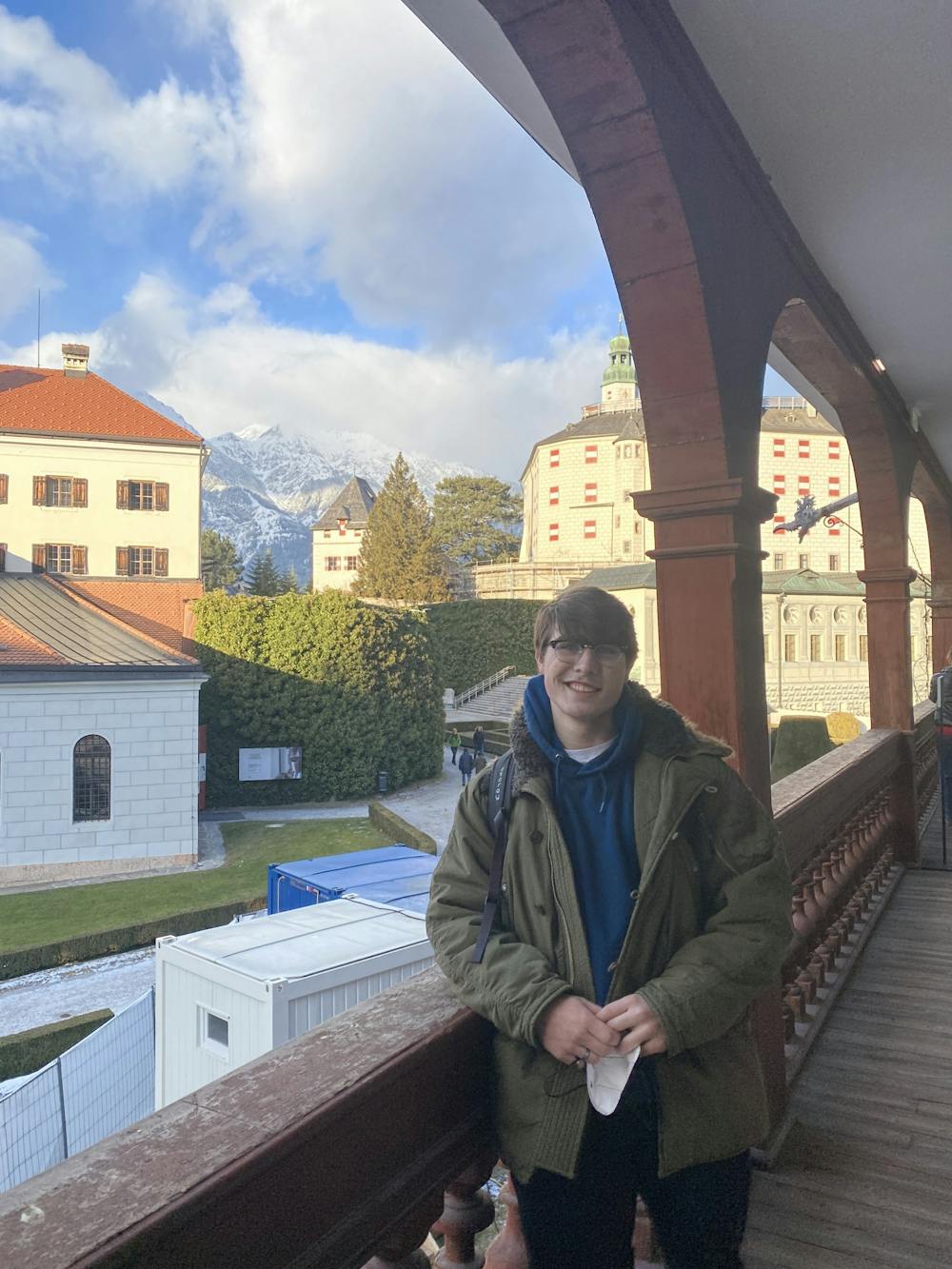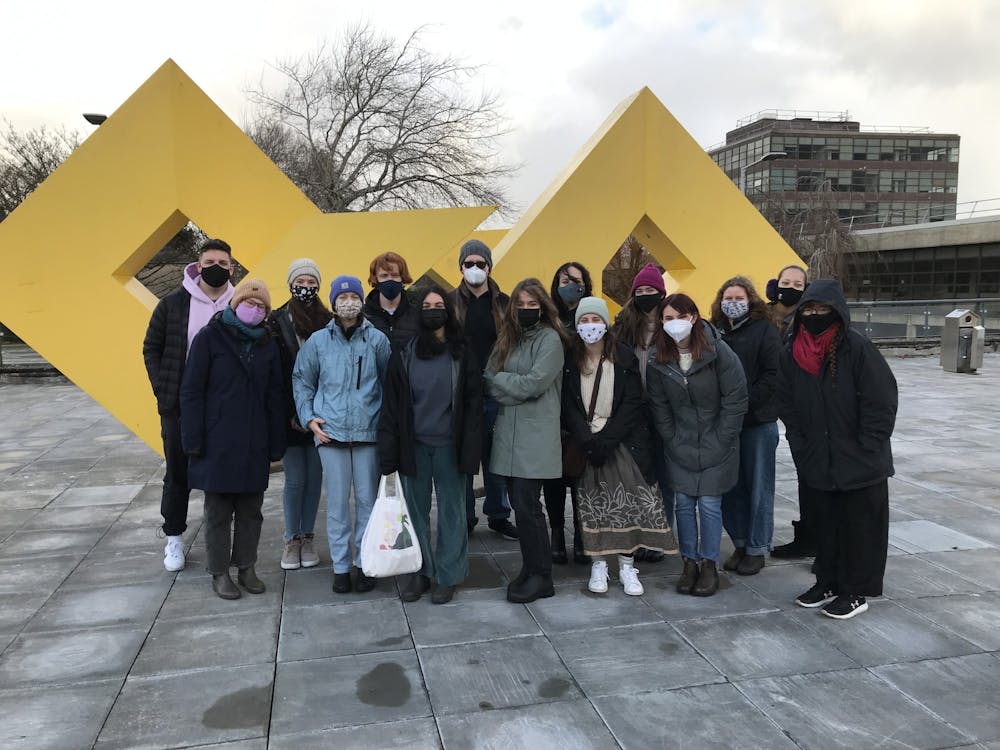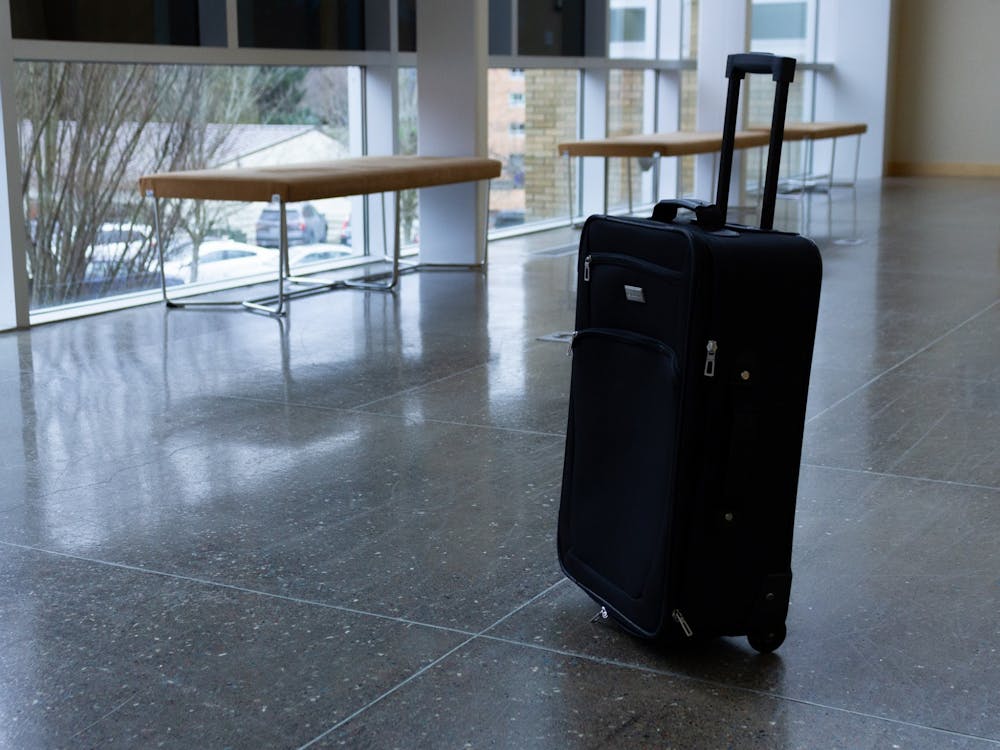Studying abroad regularly involves making sacrifices. The pandemic made this more apparent than ever.
“I was never intending to go (study abroad) during my senior year of college,” senior Tommye Finan said. “But you know, I had to go … and I was willing to make that sacrifice.”
Finan was one of the many students who narrowly got to live out her dream of studying abroad during college. Recently returned from a semester away in Nantes, France, she has no regrets about going abroad, although it didn’t come without challenges.
Giving up her gender & women's studies minor for the opportunity to spend a semester in France was one of these sacrifices. Moving to a new country in an immersion program during a pandemic was another.
“Up until omicron really hit, it was basically completely normal,” Finan siad. “Except we had to wear masks in our class.”

COVID-19 cases in France saw a significant dip during the fall semester, but spiked heavily from December to January.
Since becoming widely available in France, vaccinations are required for entry into most businesses and locations. There are similar restrictions throughout most of Europe.
“Wherever you're going, you have to be fully vaccinated,” Finan said. “They asked for your passe santé (health pass), it's a converted CDC card for French into a QR code.”
Those studying abroad last fall saw low cases throughout Europe until their departure, when the omicron wave hit. However students currently abroad are managing high risks, uncertain plans and stricter COVID-19 regulations in Europe.
There were 46 students abroad in fall 2021, and there are 75 students abroad this spring. Twenty two students are in Salzburg, 22 in London, 11 in Galway, 10 in Granada, eight in Rome and two students studying abroad with IES, according to Studies Abroad Program Coordinator Holly Peterson.
All UP programs — besides Fremantle, Australia — are running for the spring 2022 session, according to the COVID-19 Study Abroad Dashboard.
All of the study abroad destinations that UP offers lie between level three and four per the US State Department Risk Level and the CDC risk level. Level four is the highest level: do not travel.
Most programs are continuing with caution at UP, and other institutions. UP’s booster mandate is the same abroad as it is on the Bluff, Montgomery said. This mandate states that, “all students, staff, and faculty will be required to receive a COVID-19 vaccine booster within two weeks of becoming eligible to receive the booster and to upload proof.” The University expects everyone to comply with this by Feb.1.
In Austria, a vaccine mandate is moving into effect Feb. 1. This mandate requires all Austrian residents 18 and older to be vaccinated or they could be fined between 600 and 3,600 euros.
Currently studying in Salzburg, Austria, sophomore Logan Gritzmacher is managing these harsher restrictions well.
“You actually have to have your vaccine to do just about anything here,” Gritzmacher said. “When I go to the gym, I have to show my vaccine (card). When I go to restaurants or takeout places, I have to show my vaccine (card). So they're taking a pretty aggressive approach to it.”
With stricter regulations in place, there is also more political backlash.
“Austria's more politically conservative, and so there's a lot of people here who just don't want to get the vaccine at all,” Gritzmacher said. “So we've actually seen a couple of anti-vax protests here in Salzburg.”

In Austria, people are required to wear a FFP2 mask outdoors if they are not at least six feet apart. This new restriction went into effect on Jan. 10, along with a reduced quarantine time of five days and a vaccine certificate validity of six months.
While restrictions in Austria have increased, the opposite is occurring in Ireland.
On Jan. 19, the National Public Health Emergency Team of Ireland approved the removal of almost all COVD-19 restrictions and regulations. Once approved by the government, this will change things for students in Ireland.
Sophomore Faith Scheenstra, who is currently studying abroad in Galway, Ireland, knew if she didn’t go abroad this year it would be difficult for her to study abroad at all.
“I think junior and senior year for me, at least personally, would be really hard to study abroad, sophomore year is the only time there is,” Scheenstra said.
Scheenstra is acclimating to her life abroad and facing the challenges of traveling during a pandemic.
“You want to be cautious and cautious of everything, especially traveling abroad,” Scheenstra said. “I was in New York before I came over and I was super anxious because when I was traveling to Ireland, you had to have a negative COVID test to enter the country.”
Although Scheenstra made it to her Ireland program, it is still a very different type of study abroad experience. As the omicron variant sweeps through Europe, all excursions and events are subject to change.

“We have excursions planned biweekly,” Scheenstra said. “And we did have one planned for this weekend, but it had to be postponed because it was our homestay excursion where we go and stay with Irish families … With everything that's going on, maybe not the best option.”
Scheenstra is still hopeful for a somewhat normal semester abroad.
“I think Ireland is at their peak of omicron, or just like COVID in general, and they're hoping that it goes down,” Scheenstra said.
Amidst the continued uncertainty of the pandemic, at UP, the study abroad offices are working more than ever to support students both abroad and on campus, the Director for Studies Abroad Maraina Montgomery said.
Chiara Profenna is a reporter for The Beacon. She can be reached at profenna23@up.edu.
Sophia Truempi is a reporter for The Beacon. She can be reached at truempi22@up.edu.








